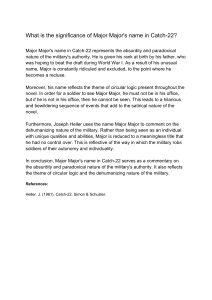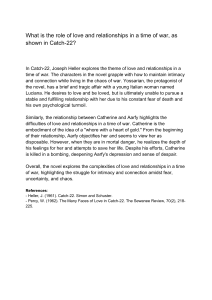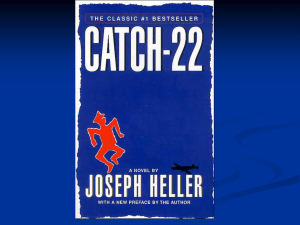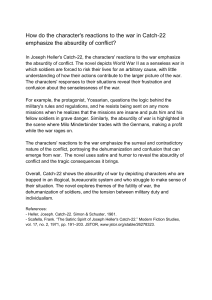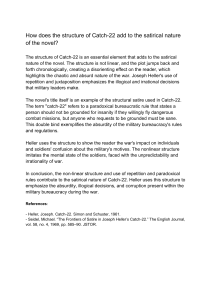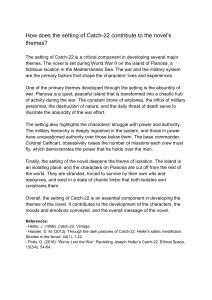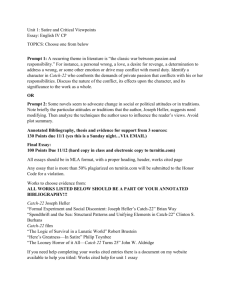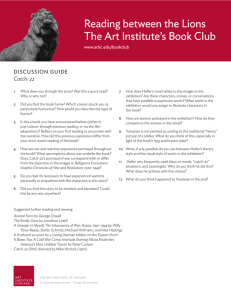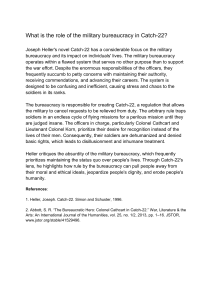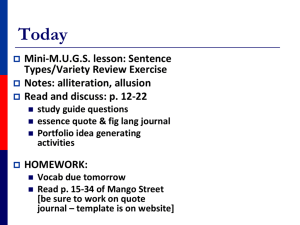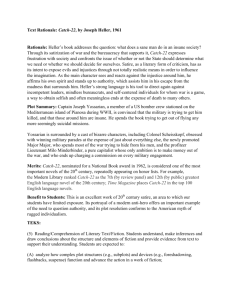What can readers learn about the themes of authority and corruption in Catch-22
advertisement
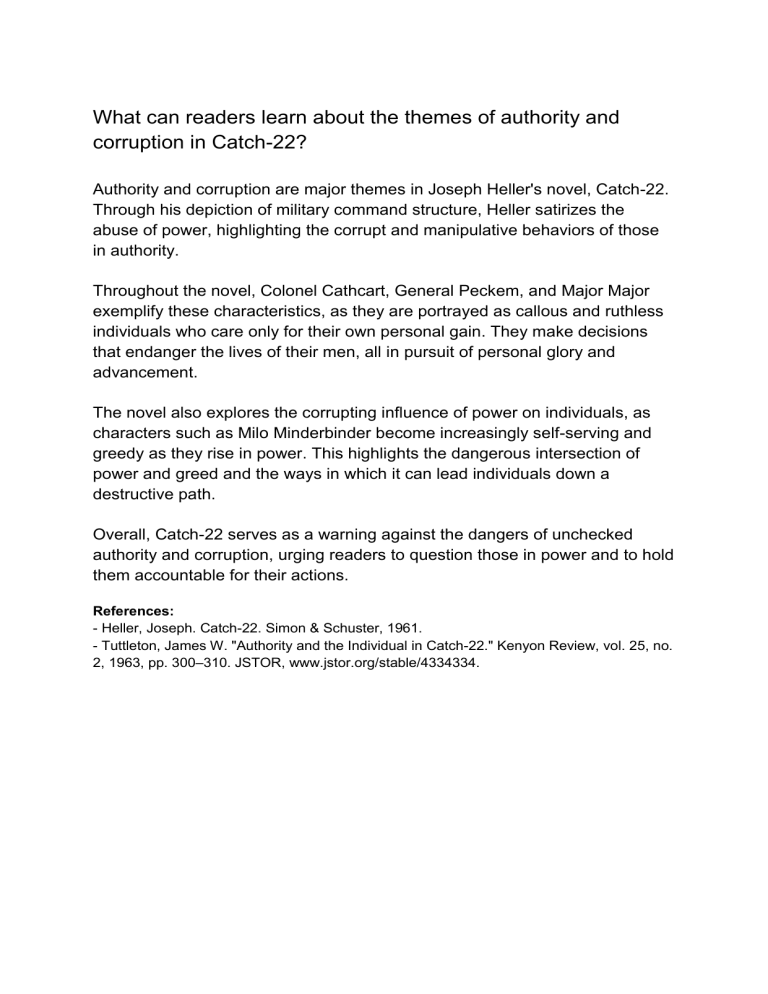
What can readers learn about the themes of authority and corruption in Catch-22? Authority and corruption are major themes in Joseph Heller's novel, Catch-22. Through his depiction of military command structure, Heller satirizes the abuse of power, highlighting the corrupt and manipulative behaviors of those in authority. Throughout the novel, Colonel Cathcart, General Peckem, and Major Major exemplify these characteristics, as they are portrayed as callous and ruthless individuals who care only for their own personal gain. They make decisions that endanger the lives of their men, all in pursuit of personal glory and advancement. The novel also explores the corrupting influence of power on individuals, as characters such as Milo Minderbinder become increasingly self-serving and greedy as they rise in power. This highlights the dangerous intersection of power and greed and the ways in which it can lead individuals down a destructive path. Overall, Catch-22 serves as a warning against the dangers of unchecked authority and corruption, urging readers to question those in power and to hold them accountable for their actions. References: - Heller, Joseph. Catch-22. Simon & Schuster, 1961. - Tuttleton, James W. "Authority and the Individual in Catch-22." Kenyon Review, vol. 25, no. 2, 1963, pp. 300–310. JSTOR, www.jstor.org/stable/4334334.
